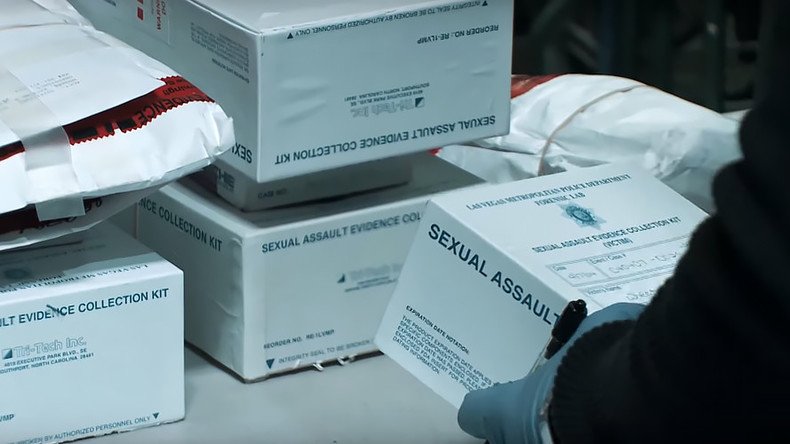Nearly 850 rape kits growing mold at Austin Police Dept

Mold has been found growing on the outside of hundreds of backlogged sexual assault kits sitting in a storage refrigerator at the Austin Police Department, raising concerns about the validity of test results from DNA samples.
On Monday, the Austin Police Department (APD) sent a memo to Austin Mayor Steve Adler and other Council members, informing them that Signature Science, a private forensics lab hired to help the city with their backlog, told them that they found mold in one of the samples they received from APD on April 25.
"I can't stand here today and tell you how it happened, and again hopefully, that's part of what we can understand from the review that we'll have done," Austin Police interim chief Brian Manley said, according to KEYE.
At a press conference Tuesday, interim Police Chief Brian Manley said the day after they found out about the mold problem, the department conducted an internal audit of 1,629 sexual assault kits and found 849 had “some type of mold on the outer box.”
APD news conference regarding mold found in rape kits. https://t.co/Sk09FRwuh8
— Austin Police Dept (@Austin_Police) June 27, 2017
Manley said that the 849 kits have not been tested for mold on the inside of the box, since they are concerned about further contaminating the kits.
"We want to make sure that we're taking the appropriate steps not only with the evidence that we have but with the equipment that we're storing the evidence in," Manley said.
Only 25 of the kits that were inspected were from 2011 or newer, Manley said, adding that the majority of the affected kits were from the 1990s and early 2000s.
“So, these cases are all old cases and they were off in the back of the lab,” Manley said, adding that the APD has sent off over a thousand kits from the refrigerator to be processed, without any reports of mold inside any of the kits.
“None of these cases that are involved in this mold growth have been used – none of this evidence has been used for prosecution, nor has it been processed,” Manley said.
It is unclear whether the mold outbreak will have any effect on the validity of the remaining untested samples. However, the memo states that Signature Science informed APD on June 21, that “no issues were observed with the samples processed from the case originally reported to have mold.”
“None of the evidence in the refrigerator had been tested and therefore had never been considered as DNA evidence in the deliberation of any case already adjudicated,” assistant city manager Rey Arellano wrote in the memo.
Manley said that in the days following the discovery of mold, the APD spent $14,000 an industrial dehumidifier and contracted with Norfoxx Commercial Refrigeration to seal all seams on the outside of the evidence warehouse’s walk-in refrigerator.
APD said they have reached out to the Texas Forensic Science Commission for assistance and guidance.
"We want to make sure that we're taking the appropriate steps not only with the evidence that we have but with the equipment that we're storing the evidence in," Manley said, according to KEYE.












